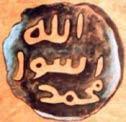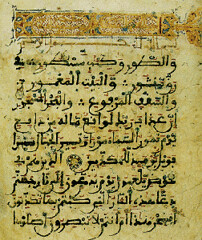Ever wondered the best way to answer the endless stream of questions that invariably come from children in the back of a car during long journeys?
Wendell Jamieson decided to tackle the problem by putting the most common queries to academic experts on a range of subjects, from mammalian evolution and medicine to ancient history and meteorology. Here are some of the most fascinating questions and answers from a new book he has compiled.
How far up in the sky can a child's balloon go before it pops?
I'm assuming this is a typical rubber balloon, which can have a diameter of up to three feet and is filled with helium. It will expand in proportion to the decrease in atmospheric pressure and, in theory, could reach about 28,000 feet before the rubber gets brittle from the lower temperature and then pops.
Why do people "fall" in love?
We don't really fall in love; we jump in love - we are at the mercy of our chemical make-up. Chemicals are released in our brain when we are drawn to someone. One of these, phenylethylamine, makes us feel very excited - everything seems wonderful. It's almost like flu: your face is flushed, your palms are sweaty, you breathe heavily, you even feel a slight tingle in the hands and feet.
Generally, people are attracted to opposites of themselves - the organised person to the disorganised; the bookworm to the social butterfly.
In the next stage of love, a hormone called oxytocin is released. This plays an important role throughout our lives: it is a "cuddle hormone" and acts as a kind of infatuation chemical. Childbirth and the noise of a baby crying also make it flow.
Why do all animals have tails, except for humans, chimpanzees and gorillas? It is not just humans, chimpanzees and gorillas that don't have tails. Other apes such as orang-utans, bonobos and gibbons do not have them either.
Basically, tails are designed to provide balance for animals, particularly those that might live in trees. A tail counterbalances the weight of the head at the front of the body.
As humans became more upright and some apes started to use arms for more than just walking, the need for a tail for balancing became smaller, so over time and through evolution, it faded out.
However, we do have the remains of a tail - the bottom three or four vertebrae of the human spine are fused together to form the tailbone (coccyx).
This still has a use, anchoring muscles such as the one of your bottom, and it still really hurts if you fall on it.
Why did ancient Egyptians build pyramids? Why not giant rectangles or some other shape? Egyptologists assume they represent primeval hills, the hills that on the day of creation rose out of the flood. This idea certainly comes from the natural state of Egypt in former times. the land was flooded by the Nile, and when the flood retreated, islands appeared which were considered to be symbols of the day of creation. So a pyramid could represent such a hill.
But one could ask: why was it not just a rounded hill, why did it have edges leading to a top? Another idea is that kings used pyramids to climb up to their heaven.
But these are all speculations. A final theory is that in the Egyptian city of Heliopolis (the centre of the sun cult in Egypt) there was a monument called a benben stone.
It could be that this sacred stone had the shape of a pyramid, and that the people who built the pyramids were trying to recreate that, because the top piece of a pyramid is called a benben.
Why is the sky blue?
At first, people thought the sky was blue because there were water droplets in it, but if that were true you'd get a deeper blue when the air is more humid and that's not the case.
After a little more investigation, it was realised that the blue was due to the air molecules in the atmosphere.
The light from the sun is made up of many different colours, each of which is a different wavelength of light. The wavelength of red, for example, is longer than the wavelength of blue.
Longer wavelengths for the most part travel straight through air molecules, while shorter ones are more scattered by them.
So when the blue wavelengths hit the air molecules, they are scattered all over the sky - and that's what you see when you look up.
At sunset, when the sun is lower on the horizon, its light has to travel through many more air molecules than when it is right above us. All these molecules scatter the red wavelengths, too, and that's why the sun looks red at the end of the day.
In Antarctica, are people upside down?
Of course, when standing at the bottom of the Earth, you don't feel upside down. Your feet are on the ground and the sky is above you.
But an astronaut in Outer Space may look down at you and notice that your head is pointing in the opposite direction to someone standing at the North Pole. (Incidentally, from the same view, someone in London may look somewhat sideways.)
Thanks to gravity, we're all grounded on the Earth with our heads towards the clouds, and we're all right- side up relative to our location. Life is all about perspectives.
If you don't hit anything with it, how does a whip make that noise? That very satisfying "crack" is a miniature version of a sonic boom as the very tip of the whip - which is called the "cracker" (made out of a tuft of thread or string or nylon) - moves faster than the speed of sound and breaks the sound barrier.
The speed of sound in air is 760mph. Only whips with crackers make that sound. The whip was probably the first manmade object to actually break the sound barrier.
Why does red mean stop?
The 19th-century Scottish engineer Robert Stevenson, who was active in designing early lighthouses, looked for an alternative colour to white - most lighthouses had a white beacon - when he built a lighthouse near to one that already existed, because he was afraid ships wouldn't be able to tell which was which. Of the light sources and coloured glasses available at the time, he found that red was a particularly intense light, meaning it could be seen from the greatest distance.
So in maritime signalling, red became an alternative to white, and was later adopted by the Admiralty in 1852 to mark the port-side on steam vessels. Green was adopted for the starboard-side, and vessels seeing the green light on other ships had the right
When train tracks were developed, engineers adopted this system as meaning stop and go - and the same system continued with cars.
Why do we have eyebrows?
In his surprisingly weird book The Expressions Of The Emotions In Man And Animals, Charles Darwin maintained that human eyebrows are descended from the vestigial remnants of the scattering of long hairs one finds in the very same place on other mammals, including chimps and dogs.
But why were eyebrows preserved, while most of the rest of our hair was lost?
In accordance with Darwin's views on sex selection, he believed that those human hairs which remain are those which are attractive to the opposite sex.
However, another suggestion is that they're important for forming facial expressions that are more easily recognised by other individuals in one's social group.
They also serve the practical purpose of stopping sweat and rain running down your forehead into your eyes.
Why do clouds make shapes?
Meteorologists divide the infinite varieties of cloud formation into ten basic types. Not all of them make shapes - some are just too blurry and indistinct to have any clear edges to them. But the most distinct are the sharp-edged "cumulus" clouds, which are the fluffy cottonwool tufts you see on a sunny day. They often look like elephants. This is because they can develop vertical towers, borne on rising columns of air (thermals).
After about ten minutes, the cloud's droplets start to evaporate at the sides, leaving a central trunk that curls upwards as it is blown along in the wind and looks like the trunk of an elephant.
This might be why ancient Hindus and Buddhists believed elephants to be the spiritual cousins of clouds.
Why do you never see baby pigeons?
Because they can't fly. You'll never see them unless you look into a nest, which pigeons build hidden away from predators such as cats, dogs, hawks and people. The squabs (chicks) will be there three to four weeks before they can fly. You probably do see young birds, you just don't realise it because young birds are the same size as adult birds. If you see one out there chasing other pigeons around, it is probably a baby begging its parents to feed it.
Do unborn babies know they're in there?
Thankfully, no - if you knew you were in there, it would be kind of scary for nine months.
The foetus is growing, of course, but the frontal lobe of our brain - which gives us emotion and self-recognition - develops very slowly.
Even until adulthood, the frontal lobe isn't fully developed: that's partly why we sometimes see bad judgment in teenagers.
Foetuses do all sorts of exploring behaviour in the womb. They run their hands along the inside of the womb, they feel their own feet and their faces, and they put their hands in their mouths.
Studies have also shown that a newborn infant will recognise its mother's voice compared to a stranger's voice and will also recognise its native language versus a foreign one.
How many hairs do I have on my head?
The average adult has about 100,000 hairs or follicles - and children have the same amount. Redheads have fewer because their individual strands are thicker. It's extremely rare for children to lose their hair. Usually it will happen in their 20s, 30s or 40s, depending on their genetic code.
Why do your hands and feet go wrinkly in the bath, but not the rest of you?
The outer layer of your skin, the epidermis, produces an oily substance called sebum - you can see it when you touch a mirror or a window; it's the oil you leave there.
Sebum keeps water off your skin, but after a long period underwater, the sebum is washed off and the skin starts to absorb water.
When you are immersed for a long time, dead cells in the outermost layer of your skin (which protects the body from the environment) absorb the water. This causes this layer to expand and therefore have a greater surface area. Being attached to the tissue below, it wrinkles to compensate for the greater surface area.
This outer skin layer is thicker on the palms of your hands and on the soles of your feet than on the other parts of your body, so absorbs more water here, making the wrinkling more noticeable.
Labels: creative enterprises, filed under 'future', fun facts, fyi, learning stuff









![36_2_25[1]](http://static.flickr.com/53/152362417_eb6e804f5b_o.gif)